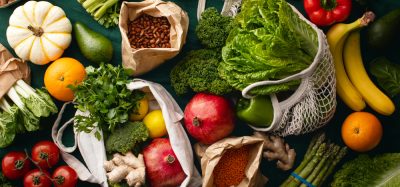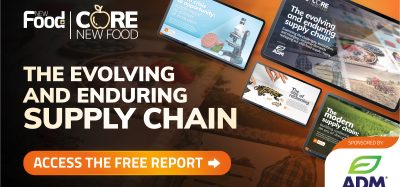10 priorities for Brexit from leaders in UK food and drink supply chain
- Like
- Digg
- Del
- Tumblr
- VKontakte
- Buffer
- Love This
- Odnoklassniki
- Meneame
- Blogger
- Amazon
- Yahoo Mail
- Gmail
- AOL
- Newsvine
- HackerNews
- Evernote
- MySpace
- Mail.ru
- Viadeo
- Line
- Comments
- Yummly
- SMS
- Viber
- Telegram
- Subscribe
- Skype
- Facebook Messenger
- Kakao
- LiveJournal
- Yammer
- Edgar
- Fintel
- Mix
- Instapaper
- Copy Link
Posted: 19 July 2017 | Food and Drink Federation, New Food | 1 comment
In a joint letter, signatories from 26 representative bodies from across the UK food and drink supply chain have agreed 10 key priorities for the negotiations with the EU to protect the UK’s food security and our world leading food and farming sector.


The open letter, whose signatories included Ian Wright, Director General of the Food and Drink Federation, Nick Allen, the Chief Executive of the British Meat Processors Association and Brigid Simmonds, Chief Executive of the British Beer & Pub Association, covered a broad range of topics relating to the Food Industry and read as follows:
“Our trading ties with the EU are deeply interwoven, as is the regulatory framework. Abrupt change would have enormous consequences for our industry, its employees and for the choice and availability of food in this country:
“We write on behalf of the many thousands of businesses, large and small, responsible for producing, packaging, distributing, serving and selling food and drink. Food and drink is the UK’s largest manufacturing sector and the largest employer in the service sector.
Between us we employ four million people throughout the ‘farm to fork’ food chain and we do so in every constituency across the United Kingdom.
“Feeding people well is a matter of national security and vital to the success of the UK economy. Since the vote to leave the European Union, we have worked with the UK Government to explain the policy outcomes we need in order to continue providing safe, affordable and nutritious food and drink to UK consumers.
“UK food and farming is world leading. The products, services and brands we export around the globe showcase our reputation for quality and provenance. The opportunities for our industry are huge. But uncertainty around the shape of our exit from the EU, the future of our domestic farming and fisheries production, and a looming skills and workforce shortage threaten the viability of our businesses.
“Our trading ties with the EU are deeply interwoven, in respect of both imports and exports. So too are the regulatory frameworks in which we operate. These complex relationships must be handled with patience and care. Abrupt change would have enormous consequences for our industry, its employees and for the choice and availability of food in this country.
“We have come together from our diverse industries to agree 10 priorities for the negotiations. By working in partnership we can protect the UK’s food security and deliver the jobs and growth the UK needs to thrive.
“We offer you our expertise to deliver these 10 key outcomes:
- Avoid any ‘cliff edge’ by securing an adequate interim and transitional period to help us prepare for a new relationship with the EU.
- Quickly negotiate the right to remain for our valued EU workforce and their families.
- Recognise the unique nature of our relationship with Ireland by agreeing a series of special solutions on workforce, regulation and borders.
- Deliver continued zero-tariff and frictionless trade across borders in both directions to give consumers the choice they expect, at a price they can afford.
- Maintain consumer confidence in UK food safety and authenticity through a stable, equivalent regulatory framework to ensure seamless trade.
- Work with us to develop home-grown talent and consult us fully over the needs of industry ahead of any new migration scheme.
- Support our ambition for an industrial strategy sector deal. to harness our industry’s growth potential and improve productivity.
- Turbocharge exports support to help smaller food and drink firms take advantage of new opportunities so that we can grow our share of global trade.
- Provide a competitive supply base and ensure reforms to UK farm support – and to fisheries management – take full account of the needs of the rural and coastal communities, planning and investment horizons.
- Maintain the UK as the destination of choice for multi-national food and drink firms and encourage inward investment to benefit our local communities.
We believe these are all deliverable by a Government and Parliament committed to securing the best possible outcome from Brexit. We urge you to work with us as the negotiations proceed.”










This is delusional stuff. On 29 March 2019 – unless an extension to the Art 50 timescale is obtained – the UK will leave the EU and thereby acquire the status of a “third country”. This is not negotiable. And then, as Michel Barnier has warned, the full gamut of veterinary and phytosanitary border checks will apply to our exports to the EU.
This will include the requirement present consignments to Border Control Posts (BCPs) before they can be presented to customs for clearance. Since there are only two BCPs (formerly BIPs) in northern France, one at Dunkirk and the other at Le Havre, foods will no longer be able to enter the European market via the Dover-Calais route. However, since there is not enough capacity to handle UK goods at the existing BCPs, there will be no easy route into Europe.
Outside the EEA, there are no exceptions to the rules. Even countries which have comprehensive free trade agreements are bound by these rules. Export of foods to the EU, therefore, is not going to be frictionless. In fact, given the requirement for country listing and other rules, it is hard to see whether there can be any export to the EU on and in the immediate aftermath of exit day. Trade flows are bound to be reduced and it could be a year or more before normal volumes resume (if ever).
See: http://www.eureferendum.com/blogview.aspx?blogno=86542